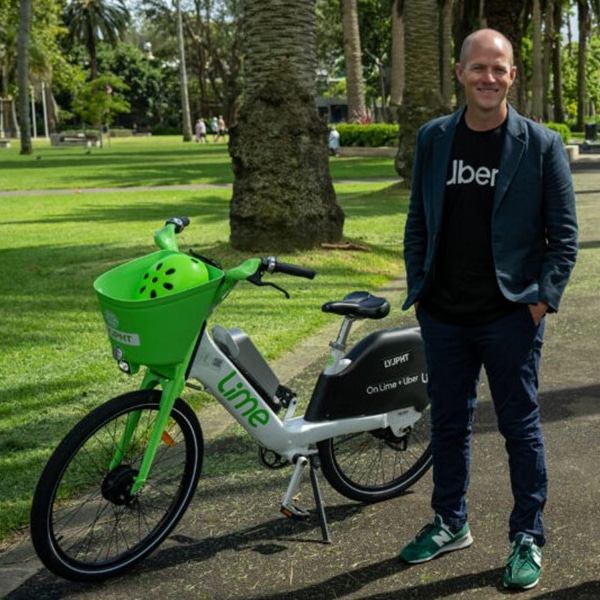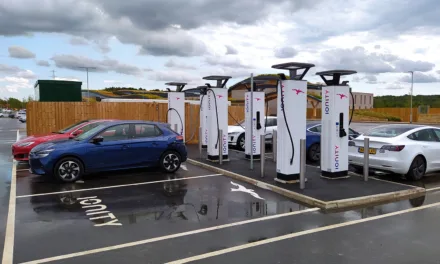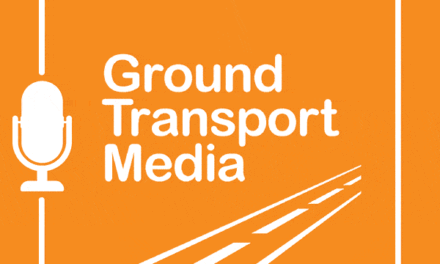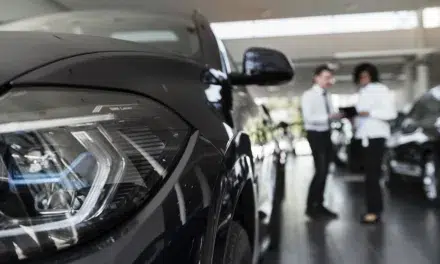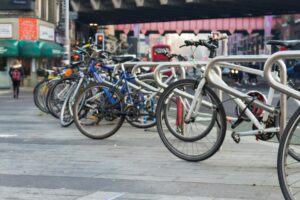At Uber, our mission is to reimagine the way the world moves for the better. This is a bold aspiration and reflects our commitment to tackling some of the biggest issues facing Australians when it comes to how we move around our Cities.
Globally, we’ve committed to enabling 100% of passenger trips in zero emission vehicles, on micro-mobility and on public transit by 2040. To help advance that goal, here in Australia we have created shared rides options like Uber Pool, integrated micromobility and public transport options into the Uber app, committed to bringing car sharing to the mainstream, and invested in electric vehicle uptake.
But we believe it isn’t just how our vehicles are powered which presents a problem – it’s our over-reliance on them. As outlined in a discussion paper published by Uber, Australia is amongst the top 5 countries with the highest rates of private car ownership per capita and 50% of households in Australia don’t just have one car – they have two or more cars.
The private vehicle already dominates Australia’s transport landscape, with 72% of Australia’s mobility trips taking place in a car, dwarfing public transport, rideshare and taxi (14%). The one person, one car approach isn’t sustainable now and becomes more critical when you factor in the 40% increase in the Australian population forecast between now and 2050.
Advertisement
We believe Australia’s over reliance on the private vehicle urgently needs to be addressed to reduce congestion and pollution, and create greener, more liveable cities for the future.
Along with industry partners, we want to do our part to change attitudes towards the private car, reducing over-reliance, and alleviating economic, societal and environmental burdens.
That’s why today, we’re embarking on a new journey that we hope will help reimagine Australia’s relationship with private car ownership.
Introducing ‘One Less Car’
As we consider the impact car ownership has on both the liveability of our cities and our environment, Uber Australia is excited to announce our ‘One Less Car’ experiment, where we’ll challenge 50 Australians living in capital cities to give up their car for a four week period and document their experience throughout.
In partnership with behavioural scientists The Behavioural Architects, micro-mobility company Lime and eBike subscription service Lug + Carrie, the first of its kind social trial aims to test and analyse the advantages and disadvantages of forgoing a car for a four week period.
Participants will be incentivised with over $1300 in transport credits to use on alternative modes of transport, and fitted out with personal health trackers to measure health and wellbeing impacts.
We are seeking expressions of interest for trial participation, so if you are interested in experiencing first hand the health, financial and sustainable impacts of living ‘car light’, please head to uber.com/onelesscar.
Advertisement
Australians want improved City liveability, but don’t recognise their individual role
A recent consumer survey commissioned by Uber found that:
- Despite Australia’s already high reliance on car ownership, 2 in 5 (42%) metro Australians surveyed are considering personally purchasing another car in the next 2 years.
- However, more than half of metro Australians surveyed (51%) expressed their concerns for their neighbour’s reliance on their private car.
- Almost half of city-based Australians surveyed want to:
- see reduced road congestion (49%)
- live in a greener and more sustainable city (42%)
- and want more access to parking when needed (42%).
The research revealed no material difference in attitude towards car ownership between young adults and senior Australians, demonstrating that Australia’s already high levels of car ownership won’t change unless directly addressed.
Increasing cost of living pressures already taking its toll
As outlined in a discussion paper published by Uber, car ownership costs the average Australian household $364 a week, equating to almost $19,000 a year.
Rising cost of living pressures could be causing pause for thought when it comes to increasing car ownership:
- Nearly 2 in 3 Australians surveyed (69%) are concerned about the cost of car ownership. The perceived cost benefit of ditching a car was the number one factor that metro Australians surveyed said would motivate them to consider reducing car ownership (37%)
- Other motivating factors behind why metro Australians surveyed may reduce their reliance on car ownership included:
- if there was better access to public transport options (23%);
- environmental impact considerations (10%); and
- and improved health and wellbeing benefits (9%).
We hope this trial will provide better insights into the financial, environmental and health and well-being impacts of living a car light lifestyle. We look forward to sharing learnings with industry and government, to support urban planning efforts across the country and help create greener and more liveable cities.
Carl Rhodes, Dean Professor at University of Technology Sydney said: “If Australia is serious about tackling the climate crisis, reducing our over dependence on private vehicles for transportation is part of the solution. As a business school committed to supporting an innovative, sustainable and prosperous economy, we were proud to host an industry roundtable that explored practical solutions to tackle this issue, while raising awareness of its prominence with key industry players. We look forward to developing these solutions with industry, government and community partners to address Australia’s over reliance on the private car, and to ensure the liveability of our Cities.”
Advertisement
Hugo Burt Morris, General Manager at Lime said: “Lime’s mission is to help build a future where transport is shared, affordable, and carbon-free. We’re excited to see how this experiment will show Australians, particularly those commuting into metro City areas, the possibilities involved in going car-light, and we look forward to partnering with Uber to help Australian cities build sustainable transport networks.”
Benjamin Carr, Founder at Lug+ Carrie said: “At Lug+Carrie we want to enable people to leave the car at home more often by providing no commitment, and flexible subscriptions to market-leading eBikes. We know a lot of parents are unaware there are other practical ways of making local trips with the family than their car. We look forward to demonstrating how eBikes can save families time and money when travelling around Cities. We are excited to be partnering with Uber on this project to show Australia the benefits of a car-light lifestyle, and the role micromobility can play in that. Shifting to urban mobility that is smart, green and fun will not only help make city life more sustainable but also more enjoyable for communities.”
About the trial
Uber’s One Less Car trial is now accepting expressions of interest, seeking the participation of 50 Australians to forgo the use of their car (or second car) for a four-week period. Trial participants will be based in Metro areas across Sydney, Melbourne, Brisbane, Adelaide and/ or Canberra.
Trial participants will be provided with over $1,300 in transport credits that can be used towards a range of mobility options, including public transport and point-to-point transport, if they forgo the use of their car (or one of their cars) for a four-week period. This allowance was calculated based on the average two-car Australian household spends approximately $325 per week owning and operating vehicles, excluding incremental property costs associated with parking and garaging.
Participants will be surveyed throughout the trial to understand the perceived benefits that reducing private car ownership brings, along with any pain points experienced. Participants will also be fitted out with personal health technology to measure impacts to health and wellbeing, as a supplement to cost benefits.

